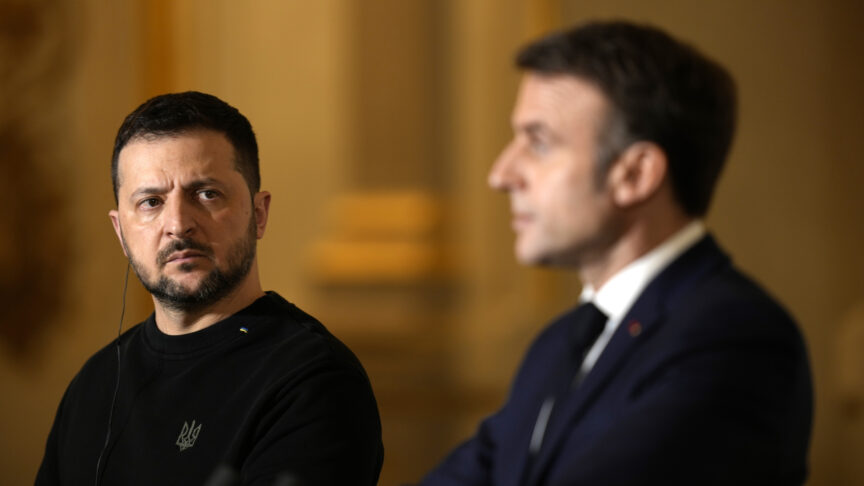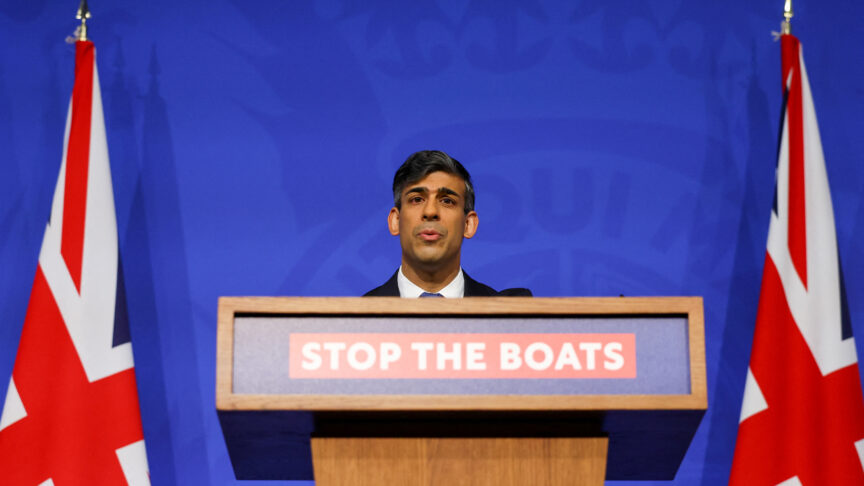After the Paris Massacre: What will this change?
France's response to the terrorist attacks shows strength and unity, but also underlying anger.
This is one entry in a series on the murders at Charlie Hebdo. Find more articles on the issue in the right column (or on the bottom for mobile or tablet readers).
The scale of the response from the French to the terrorist attacks has been overwhelming, bringing about the largest public demonstrations ever held in a country that excels in this form of expression. And not just in Paris. In France’s third-largest city, Lyon, for example, 300,000 demonstrators were estimated, well over half of the city’s total population. In the small city in which two of the terrorists made their last stand, the number of demonstrators exceeded the local population.
The size of the demonstrations has been impressive, but so too has been their message. First, we have witnessed relatively diverse crowds, not only in age and social background, but in race and religion as well. It is clear that the messages of condemnation from a number of Muslim community leaders and clerics have had some impact. Some Imams have publicly expressed regrets for being too quiet about extremism before, and have called for Muslims to come out en masse. Secondly, the demonstrations have been almost free from violence or altercations. As rivulets from the main demonstration passed along Rue Jean-Pierre Timbaud in north-east Paris, the hotbed of radical Islamism in France, open, well-lit, and empty Islamist bookshops and a prayer centre were left untouched, and even perhaps went unnoticed by the crowd.
The underlying anger should not be underestimated.
Yet the underlying anger should not be underestimated. Throughout the demonstration, the word heard most often was “freedom”, and the symbols that the demonstrators held high reflected this: Charlie drawings, pencils. But many French flags could also be seen and La Marseillaise could be heard, which is highly unusual in French demonstrations. Even stranger were the enthusiastic cheers addressed to police forces, directed at bewildered riot police who are more accustomed to receiving insults than praise, as well as at the special-forces snipers on the roofs above the Paris streets.
Both of these sentiments are supported by the first opinion polls taken since the terrorist attacks. Eighty-one percent of respondents across France expressed their wish to publicly display their condemnation of terrorism; 61 percent said their main sentiment was anger. Even more tellingly, a poll on the issue of support for the French intervention in Iraq (as the question was formulated, meaning against the Islamic State/Daesh) shows that French support has not declined in the space of a few days. Instead, it has increased, from 64 to 69 percent of respondents, and France’s prime minister has already announced that the action will continue.
The overwhelming message is one of strength and of unity.
What are the political consequences of these attacks in Paris? The overwhelming message is one of strength and of unity. This has consequences for the so-called populist movements in Europe. Polls show that a large majority disapproves of the exclusion of the National Front from the demonstrations (this was tempered by a government statement that anybody could come, and assurances that Marine Le Pen would be protected if she chose to come). But on this day on which national symbols were omnipresent, the National Front has been marginalised. An instant reconstruction of national identity is happening that makes the National Front and its bitter ideology beside the point.
But answers are being sought. The debate that has been started regarding policy responses has highlighted a few points: the necessity of reforming education in France, reflecting public dismay at the anti-Semitism and support for violence among some underprivileged youth; the need to reform jails (in which an incredibly high level of detainees, perhaps two-thirds, are estimated to be at least nominally Muslim), since prison is a choice location for radical proselytising; reform of the Schengen regime, to allow for security checks and to improve information sharing on Europe’s internal borders and travel as well as to strengthen external controls. The case for reform is well illustrated by Hayat Boumediene, the activist wife of one of the terrorists, who reportedly flew from Madrid to Turkey and onwards to Syria on 2 January. But this came to light only on 9 January, well after the terrorist attack had started.
It is particularly urgent that strong security measures be put in place to protect the French Jewish community. Beyond the most visible attacks, they have lived for years in a climate of growing anti-Semitic sentiment from radical Islamic quarters, and this has been denied for too long.
It is not all about the banlieue.
Fewer voices are arguing for social measures to address some of the root causes for the recruitment of terrorists. People are weary of this topic. First, the French policy of social subsidies and neighbourhood renewal has been significant, probably the most intensive in the world. It is not all about the banlieue. Two of the terrorists, although adopted orphans, were raised in inner Paris and not in the suburbs; the third one stocked his weapons and ammunitions in a stodgy middle-class neighbourhood. All had held jobs. Secondly, it is a simple fact that all terrorist attacks in France in the past ten years have been perpetrated by individuals claiming to act in the name of Islam, without exception. Thus, when addressing violent extremism, it follows that it is sensible to narrow the focus to the specific ideological and political problem of Islamic radicalisation in France. One can disperse efforts more widely, but it seems unlikely that we will cure all of France’s social ills.
Thus far, there has been little pressure to strengthen security or anti-terrorism laws, to introduce something like a French or European Patriot Act, although this could come up in parliamentary debate later. There was an obvious failure of intelligence involved in the terrorist attacks, since all three individuals (likely with an as-yet unidentified supporting cast) should have raised multiple red flags. Not only did they have previous criminal convictions, but they were known to have frequent contact with Djamel Beghal, the well-known activist who is now under assigned residence in central France after a jail term. More human resources have already been pledged for internal intelligence, but the fact is that France is a country in which investigative powers, recently strengthened by a new law, are already quite strong. And although the role of civic education is in question, there is no question of loyalty oaths or visible symbols – France remains utterly secular, patriotism is voluntary, not mandated, and this is probably what has provoked the immense outpouring of the last few days. The issue of censoring radical internet sites (or at least more aggressively monitoring them) has again emerged.
European immigration policies will also be questioned.
Beyond the emotion, European immigration policies will also be questioned. Every month, 80,000 migrants flow into Greece and Italy, many of them fleeing the conflict in Syria. Securing the Turkish-Syrian border is a major challenge, but so too is Greece and Italy’s management of the flood of refugees. The current governments have been only too willing to direct refugees elsewhere, while the rest of Europe is not financially supportive enough of their plight. Lack of European consensus and defective coordination of immigration presents a major challenge to popular support for the European Union.
Let us risk a hypothesis, however: barring new acts of terrorism by different actors, this debate will remain important but not existential. The terrorists recruited in France are our own: born, raised, and recruited in France. The issue is one of religion and ideology before it is one of immigration. For this reason, the massive displays in this weekend’s demonstrations of unmistakably French identity, and at the same time, the unmistakable signs of mixed races and cultures within this French identity, are reassuring.
The European Council on Foreign Relations does not take collective positions. ECFR publications only represent the views of their individual authors.


